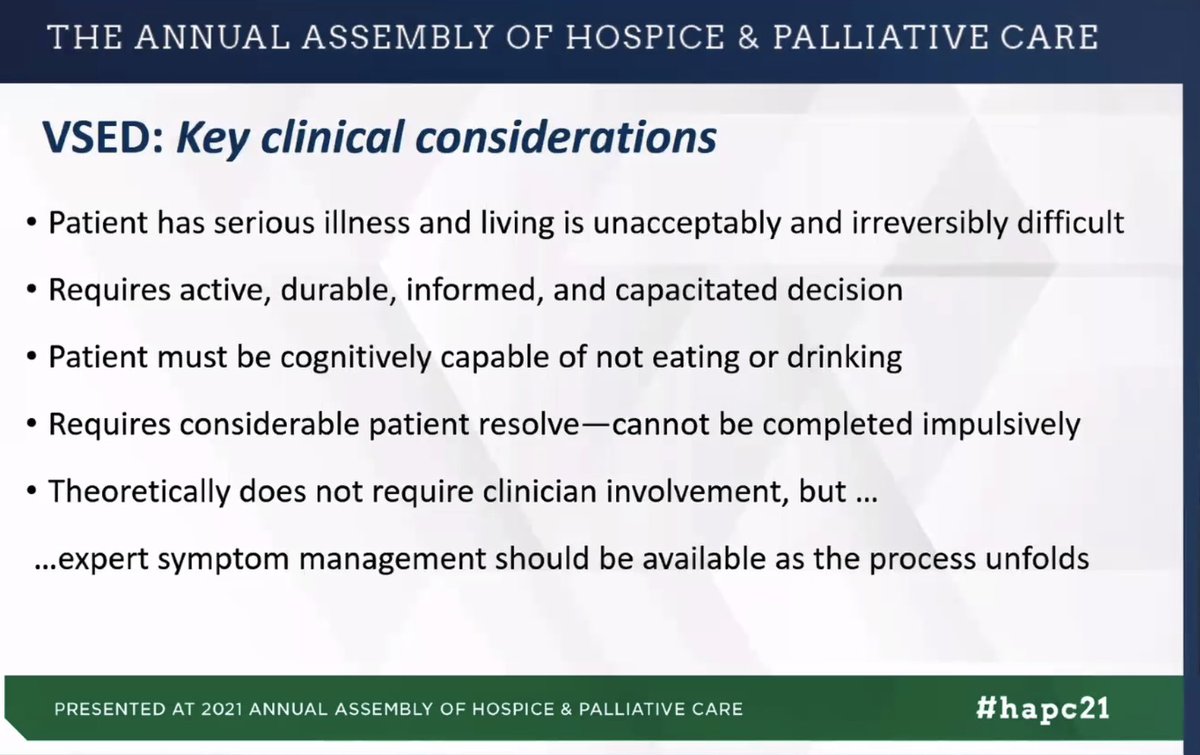
Diving into a difficult topic at #hapc21. Dr. Horowitz is starting with his mother, who had dementia and was considering voluntarily stopping eating and drinking (VSED). 

Key points about the key clinical considerations around VSED: note that life should be unacceptable and IRREVERSIBLY difficult. This can't be an impulsive decision. #hapc21. 

Psychiatric considerations are important too. There is an important difference between the wish to die vs. the wish to "not live like this" when considering VSED. #hapc21 

The decision for VSED is an iterative process. Expect a series of conversations. #hapc21 

The logistics around VSED are important. Saying goodbye. Visiting important places and people. Scheduling a last meal. I can only imagine the resolve and support needed to prepare like this. The emotions. #hapc21 

Symptomatic considerations for VSED. Hunger is generally transient; thirst is persistent. Know that ice chips can add up quickly and prolong life-this bears a discussion with patients as to their preference. #hapc21 

Dr. Horowitz's mom's last days. She gave permission for her experience to be shared. So grateful to both doctor and mom for sharing - this was very powerful and I feel like I have a much better understanding of VSED from the patient and family perspective. #hapc21 

No discussion of VSED would be complete without discussing the ethics around it. Dr. Quill takes us through the hard questions. #hapc21 

It's generally accepted that we can't ethically force feed mentally competent patients at the end of life. #hapc21 

The other ethical questions around VSED are more complicated. #hapc21 







• • •
Missing some Tweet in this thread? You can try to
force a refresh














